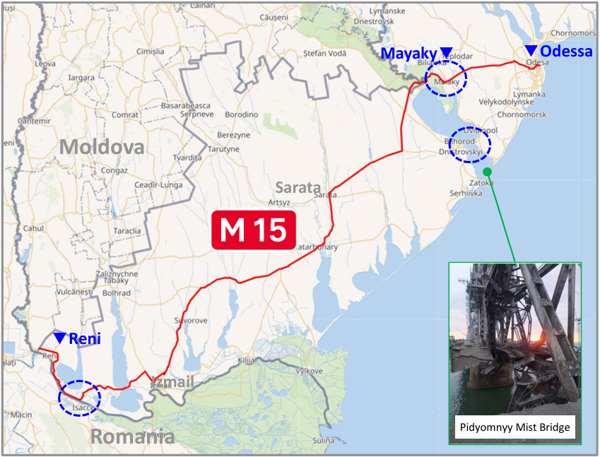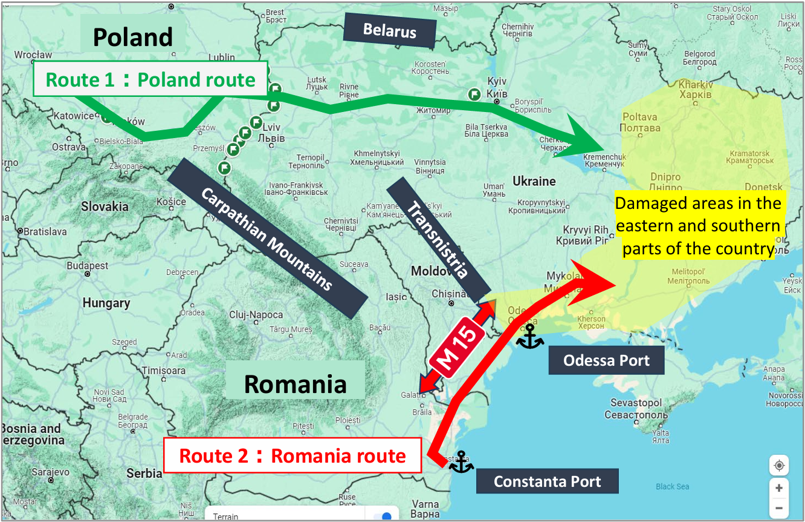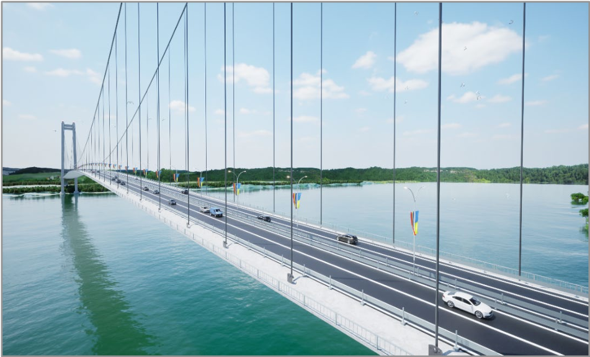Among the countries of the G7, Japan stands out as a very generous partner of Ukraine, with a discreet style of communication regarding its investment projects in the country tormented by the Russian invasion.
The important thing about the Japanese approach is an accurate preliminary study of the territory being invested in and the medium-long term strategic vision. An example of this style of work is represented by the project illustrated by the Japan-based consulting and engineering firm PADECO, during the online seminar at the end of May 2024, organised by the law firm Interlegal of Odessa and the EBA European Business Association - Southern Ukrainian Office, dedicated to investments and projects of development in southern Ukraine.
Among the speakers, Yoshi Nakagawa, Director for Infrastructure Development Division of PADECO, who worked on several infrastructure projects in Ukraine since 2004, illustrated a large project to enhance logistics between Ukraine and the European Union, investing in the trade route via Romania.
The Odessa region is strategic for Ukrainian exports to Europe, Asia and Africa, thanks to a system of 7 ports, of which the 3 largest are around Odessa, and another 3 are located on the Danube. The invasion of Ukraine with the naval blockade of the Russian Black Sea fleet has endangered maritime traffic, revealing a critical factor of weakness in Ukraine's trade routes. In fact, the blockade of Ukrainian ports has highlighted the difficulty of alternative transport of food and mineral commodities, due to the obsolete railway network and the insufficient number of bridges over large rivers. This problem is overcome by the Japanese plan drawn up by the consultancy firm PADECO, which envisages implementation through mixed partnerships between Japanese and Ukrainian companies.
In February 2024, the Government of Japan held the Japan-Ukraine Conference for Promotion of Economic Growth and Reconstruction in Tokyo. More than 50 cooperation documents between Japanese companies, including startups, and their Ukrainian partners were exchanged as an outcome of the conference. Over 30 Japanese companies and groups, including PADECO, opened a booth for their technologies and products applicable for Ukraine. The Japanese consulting firm is dealing with 3 projects of the 50 presented:
Project 1: Connectivity Improvement between Ukraine and Romania through M15.
Project 2: Power Transmission Resiliency Solution with drone application on power transmission inspection (funding by World Bank, beneficiary UkrEnergo).
Project 3: Debris Management technology for waste treatment. An Urban Rig which was used for Tsunami disaster.
The Project 1 - M15 Connectivity Improvement, which is worth to be described with more details, is structured into two phases:
Urgent repair of the Bridge in Mayaky City (Portable Panel Bridge in construction). Currently the Mayaky Bridge on the M15 national road has been damaged by bombing and it is necessary to build a new bridge on another stretch of the Dniester River.
Improvement of National Road M15, including the project of a new bridge over Danube on the Romania-Ukraine border and a large-scale bridge across Dniester. This second bridge over the same river, but further towards the coast, would enhance wheel transport.

The period of works is: November 2023 - March 2024. The funding is provided by the Ministry of Economy, Trade and Industry (METI) of Japan.
The strategic value of this infrastructure to be built is the possibility of increasing Ukrainian exports by using the Port of Constanta (Romania) as an alternative for goods arriving from Asia and Turkey. This new communication route would guarantee a safe outlet for those commodities on which the food security of many countries depends. Furthermore, in view of the accession process to the European Union, this new route would improve Ukrainian access to the Schengen area. From Odessa, alternative routes to access the EU are to Poland or Romania via Moldova. Both are longer and with transport that is still too obsolete. Furthermore, Moldova remains a country of high political risk, due to the illegal Republic of Transnistria with the presence of Russian troops.

But the most ambitious work of this project is the construction of a suspension bridge to cross the Danube, of the same type as the Braila Bridge inaugurated in Romania in 2023.

The EU TEN-T Network Revision (2022 July) designated the M15 road as “Comprehensive”, and supposed to be completed by the year 2050.
With the help of the Japanese Government, Ukraine strengthens and protects export routes, moving closer to the European Union.
Contacts for further information:
-
Yohei Soma (Director of PADECO) [email protected]
-
Yoshiya Nakagawa (Director of PADECO) [email protected]
-
PADECO Co., Ltd.: https://www.padeco.co.jp/en/




















